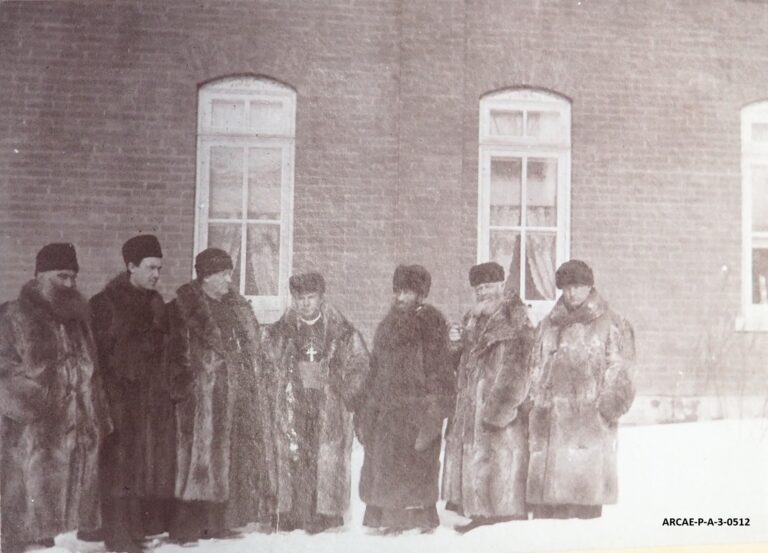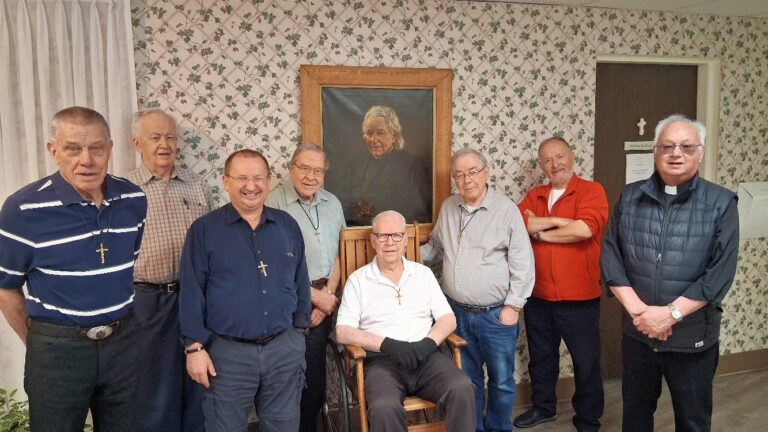On June 16th, 1675, St. Margaret Mary, a Visitation nun, was praying near Jesus in the tabernacle in Paray-le-Monial, France.[1] While she was praying, she experienced Jesus’ most significant apparition when he shared “the mysteries of his heart and requested the inauguration of what would become the Solemnity of the Sacred Heart of Jesus.”[2]
The feast day is observed on June 27. To go along with the 350th anniversary of the apparitions, Pope Francis provided the Church with the encyclical Dilexit Nos, on the human and Divine love of the heart of Jesus Christ. As he ended the encyclical, he asked “our Lord Jesus Christ to grant that his Sacred Heart may continue to pour forth the streams of living water that can heal the hurt we have caused, strengthen our ability to love and serve others, and inspire us to journey together towards a just, solidary and fraternal world.”[3]
 Within your marriage, how can you and your spouse grow in these areas and experience the Divine love of Jesus in your relationship? Within marriage, you certainly cause hurt to your spouse at different times. After all, you are both human, make mistakes, and sin. One aspect of love that Pope Francis drew attention to is to strive to grow in healing hurt you have caused others.
Within your marriage, how can you and your spouse grow in these areas and experience the Divine love of Jesus in your relationship? Within marriage, you certainly cause hurt to your spouse at different times. After all, you are both human, make mistakes, and sin. One aspect of love that Pope Francis drew attention to is to strive to grow in healing hurt you have caused others.
He reminded us that “Christ showed the depth of his love for us not by lengthy explanations but by concrete actions.”[4] When you have hurt your spouse, how can you show concrete actions to help repair the damage you have caused? You can accept responsibility for your actions, share how you will make changes, act on those commitments to change, and seek forgiveness. After all, “It is from the honest acknowledgment of the wrong done to our brother or sister, and from the profound and sincere realization that love has been compromised, that the desire to make amends arises.”[5]
Service to Marriage and Families is one of the pastoral priorities of the Archdiocese
For example, if you keep forgetting to fulfill a certain task at home, you can acknowledge your lack of follow through and set an alarm to remind you to do it. Then, when the alarm goes off, you immediately act on it. If the hurt is something deeper, such as struggling with negative habits, addictions, anger, or infidelity, you can also accept responsibility for your actions, get the necessary support like counselling, support groups, and confession, and follow through on the recommendations and strategies you receive to replace these behaviours with healthy disciplines and actions.
While doing these concrete changes, you can also seek to grow closer to Jesus and entrust your struggles to him. Pope Francis highlighted that Jesus “seeks people out, approaches them, ever open to an encounter with them. We see it when he stops to converse with the Samaritan woman at the well where she went to draw water (cf. Jn 4:5-7). We see it when, in the darkness of night, he meets Nicodemus, who feared to be seen in his presence (cf. Jn 3:1-2). We marvel when he allows his feet to be washed by a prostitute (cf. Lk 7:36-50), when he says to the woman caught in adultery, ‘Neither do I condemn you’ (Jn 8:11), or again when he chides the disciples for their indifference and quietly asks the blind man on the roadside, ‘What do you want me to do for you?’ (Mk10:51).
Christ shows that God is closeness, compassion and tender love. Whenever Jesus healed someone, he preferred to do it, not from a distance but in close proximity: ‘He stretched out his hand and touched him’ (Mt 8:3). ‘He touched her hand’ (Mt 8:15). ‘He touched their eyes’ (Mt 9:29). Once he even stopped to cure a deaf man with his own saliva (cf. Mk7:33), as a mother would do, so that people would not think of him as removed from their lives.
‘The Lord knows the fine science of the caress. In his compassion, God does not love us with words; he comes forth to meet us and, by his closeness, he shows us the depth of his tender love’.”[6] May you seek out Jesus in the midst of your struggles and in your reparation of hurts caused to your spouse and family, knowing that Jesus will meet you with compassion, closeness, tenderness, and love.
Regarding strengthening your ability to love and serve others, it can be helpful to know who you each are, and your purpose and meaning in your lives. Pope Francis provided several questions to ponder, which can assist in providing direction to your service to your spouse and others.
“Instead of running after superficial satisfactions and playing a role for the benefit of others, we would do better to think about the really important questions in life. Who am I, really? What am I looking for? What direction do I want to give to my life, my decisions and my actions? Why and for what purpose am I in this world? How do I want to look back on my life once it ends? What meaning do I want to give to all my experiences? Who do I want to be for others? Who am I for God? All these questions lead us back to the heart.”[7] These are great questions to reflect on yourself and to discuss with your spouse about any possible changes you may want to make in your relationship to love and serve each other and other people in a deeper and more authentic way. If all these questions feel overwhelming, try using one to start.
As you seek inspiration to journey together for a more just, fraternal world, you may have the tendency to see the negative events around you or feel weighed down by struggles within your life resulting in possibly feeling more disheartened and a lack of inspiration. One thing that Pope Francis reflected on is how people tend to have “the nostalgia that all of us feel, whatever our age, and wherever we live, when we recall how we first used a fork to seal the edges of the pies that we helped our mothers or grandmothers to make at home. It was a moment of culinary apprenticeship, somewhere between child-play and adulthood, when we first felt responsible for working and helping one another.
Along with the fork, I could also mention thousands of other little things that are a precious part of everyone’s life: a smile we elicited by telling a joke, a picture we sketched in the light of a window, the first game of soccer we played with a rag ball, the worms we collected in a shoebox, a flower we pressed in the pages of a book, our concern for a fledgling bird fallen from its nest, a wish we made in plucking a daisy. All these little things, ordinary in themselves yet extraordinary for us […]. The fork, the joke, the window, the ball, the shoebox, the book, the bird, the flower: all of these live on as precious memories “kept” deep in our heart.”[8]
It may be a helpful practice for you and your spouse to share these ordinary moments of your day with each other and give thanks to God for them. You could go deeper than just focusing on your day, by noticing and giving thanks for the qualities you identify in your spouse and how you saw that quality during your day.
For example, acknowledging the thoughtfulness of your spouse as they made a coffee for you as you rushed out the door. This can help increase a sense of appreciation for your marriage and your daily life together. It may also assist in experiencing a greater sense of inspiration and meaning in your lives.
Ultimately, “whenever a person thinks, questions and reflects on his or her true identity, strives to understand the deeper questions of life and to seek God, or experiences the thrill of catching a glimpse of truth, it leads to the realization that our fulfilment as human beings is found in love. In loving, we sense that we come to know the purpose and goal of our existence in this world. Everything comes together in a state of coherence and harmony.”[9]
With the Solemnity of the Sacred Heart quickly approaching, may you and your spouse take some time to contemplate the love Jesus has for you, your spouse, and your love for each other, so that you can concretely work to repair hurt you have caused, strengthen your ability to love and serve one another, and be inspired to journey together to improve the world. After all, “this apparition, then, invites [you] to grow in [your] encounter with Christ, putting [your] trust completely in his love, until [you] attain full and definitive union with him.”[10]
READ MORE: Couples invited to be a part of marriage formation teams
– Melissa Guzik is a registered psychologist who works in private practice in the Greater Edmonton area. She is the co-author of the Catholic marriage preparation and enrichment book and workbook To Know, Love, and Serve: A Path to Marital Fulfilment: 2nd Edition. Information about Melissa’s private practice can be found at www.melisssaguzik.com




